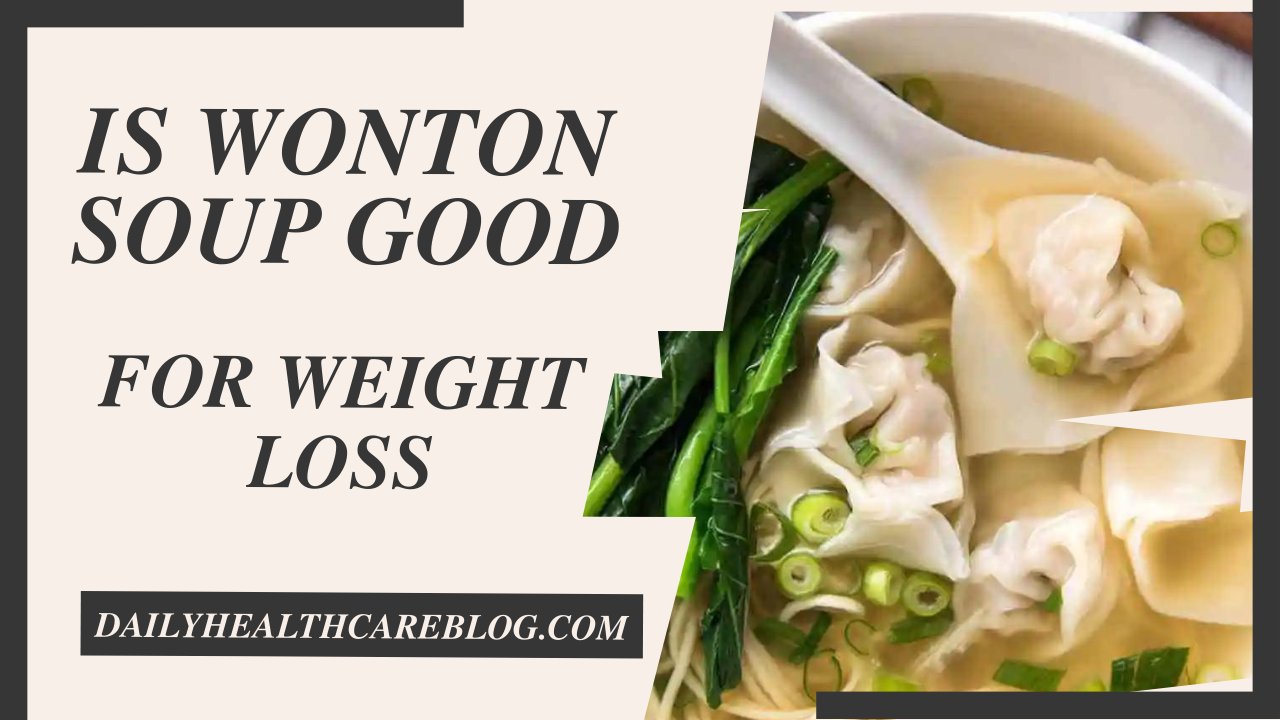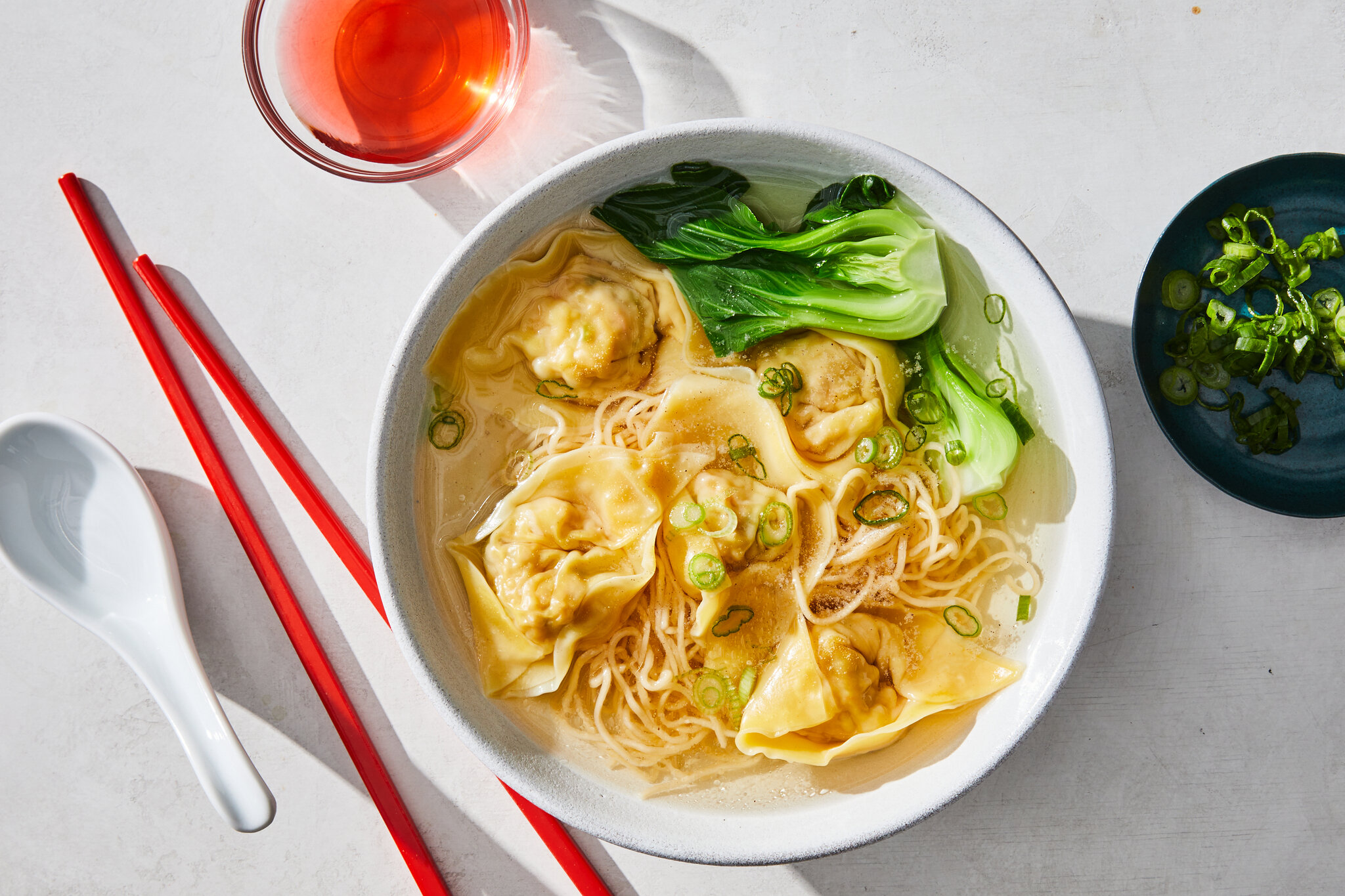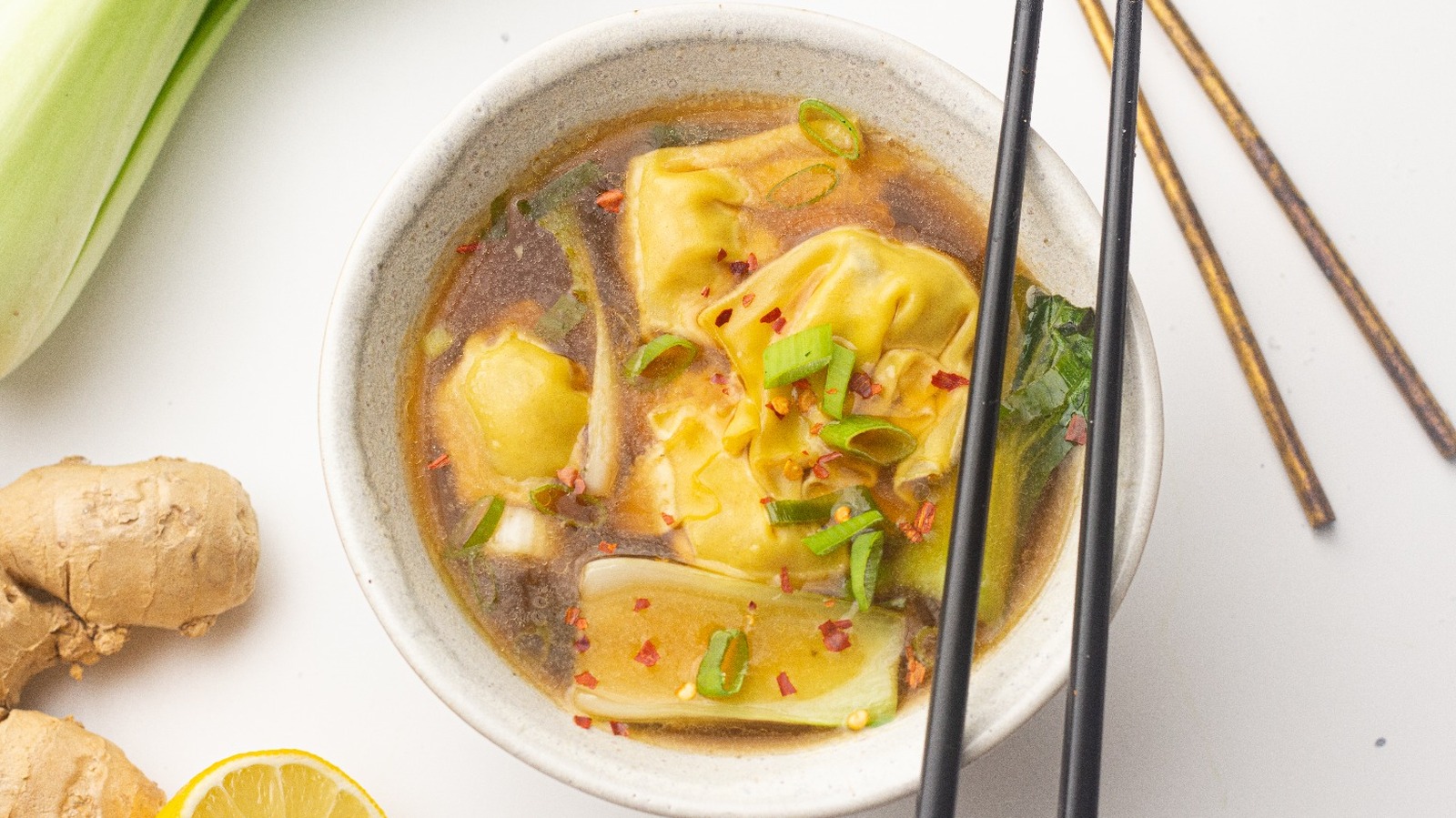Wonton Soup and Weight Loss: Unraveling the Culinary Myth
Introduction
In the intricate world of weight loss, the quest for delicious yet healthy meals often leads to curiosity about various cuisines. Wonton soup, a popular dish in Chinese cuisine, has earned a reputation for its flavorful broth and delicate dumplings. But the burning question remains: is wonton soup good for weight loss? In this blog, we’ll embark on a culinary exploration to unravel the myth surrounding wonton soup and its potential role in a weight loss journey. From the nutritional components to the preparation methods, we’ll decipher whether this beloved dish can align with the goals of a healthier lifestyle.
Is Wonton Soup Good For Weight Loss

1. Broth Basics:
Wonton soup typically features a clear, savory broth. Broths, when made with wholesome ingredients like bone broth or vegetable stock, can be low in calories and provide essential nutrients.
2. Lean Proteins:
The wontons themselves contain a filling, often made with a combination of lean proteins like ground chicken or shrimp. Protein is a crucial component in weight loss, contributing to feelings of fullness and aiding in muscle maintenance.
3. Abundant Vegetables:
Many wonton soups include a variety of vegetables such as bok choy, carrots, and mushrooms. These vegetables add fiber, vitamins, and minerals, promoting overall health and supporting weight management.
Caloric Content and Portion Control
1. Mindful Eating:
Despite its potential nutritional benefits, the caloric content of wonton soup can vary based on ingredients and preparation methods. Adopting mindful eating practices is essential to savoring the flavors while controlling portion sizes.
2. Homemade vs. Restaurant Options:
The caloric content of wonton soup can differ significantly between homemade and restaurant versions. Exploring the differences allows for informed choices, empowering individuals to align their food choices with weight loss goals.
3. Moderation is Key:
While wonton soup can be a nutritious addition to a balanced diet, moderation remains crucial. Excessive consumption, especially if the soup is high in sodium or made with fried wontons, may hinder weight loss efforts.
Wonton Soup as Part of a Balanced Diet
1. Integration into Meal Plans:
Incorporating wonton soup into a well-rounded meal plan can offer variety and satisfaction. Balancing it with other nutrient-dense foods ensures a comprehensive approach to nutritional intake.
2. Pairing with Healthy Sides:
Complementing wonton soup with healthy sides, such as a vibrant vegetable salad or steamed greens, enhances the nutritional value of the overall meal. This combination fosters a holistic approach to weight management.
3. Healthier Preparation Techniques:
Opting for healthier wonton soup preparation techniques, such as using whole-grain wrappers or incorporating more vegetables, transforms the dish into a nutrient-rich option that aligns with weight loss goals.
Considerations for Weight Loss Success

1. Individual Dietary Needs:
The effectiveness of wonton soup in a weight loss journey depends on individual dietary needs, preferences, and any specific health conditions. Customizing the dish to meet these requirements enhances its potential as a weight-conscious choice.
2. Balanced Lifestyle:
Wonton soup can be part of a balanced lifestyle that includes regular physical activity and mindful eating. Considering the overall dietary pattern fosters sustainable and holistic weight loss practices.
3. Professional Guidance:
Seeking guidance from a nutritionist or healthcare professional provides personalized advice tailored to individual health goals. Their expertise can help individuals navigate food choices, including the incorporation of dishes like wonton soup into a weight loss plan.
Addressing Common Myths and Misconceptions
1. Low-Fat Myth:
Some misconceptions suggest that all Asian soups, including wonton soup, are inherently low in fat. While broths can be lean, the overall fat content depends on ingredients and preparation methods.
2. Sodium Concerns:
High sodium levels in certain restaurant versions of wonton soup are a valid concern. However, homemade versions with carefully selected ingredients provide more control over sodium intake.
Embracing Culinary Creativity: Wonton Soup Makeover
1. Fusion Flavors:
Infusing wonton soup with diverse flavors from different culinary traditions can add an exciting twist. Consider experimenting with herbs, spices, and seasonings to create a personalized fusion rendition that aligns with weight loss goals.
2. Seafood Extravaganza:
Elevate the nutritional content by incorporating seafood into wonton soup. Shrimp, crab, or fish-filled wontons not only introduce a delectable marine essence but also bring essential omega-3 fatty acids, contributing to heart health.
3. Plant-Based Wontons:
Catering to plant-based preferences, crafting wontons with a medley of vegetables, tofu, or plant-based proteins offers a delightful option. This plant-centric approach enhances fiber intake and supports a more sustainable dietary choice.
Balancing Flavors and Nutrients
1. Sodium Consciousness:
Addressing concerns about sodium content in wonton soup involves mindful ingredient selection. Using low-sodium broth, limiting soy sauce, and incorporating flavorful herbs can maintain the taste without compromising health.
2. Herbal Infusions:
Enhance the flavor profile of wonton soup by incorporating herbal infusions. Fresh herbs such as cilantro, basil, or mint not only add vibrancy but also bring antioxidant properties, contributing to overall well-being.
3. Multi-Vegetable Extravaganza:
Amplifying the vegetable content in wonton soup goes beyond tradition. Introduce a variety of colorful vegetables like bell peppers, spinach, and water chestnuts to maximize nutrient diversity and appeal.
The Role of Wonton Soup in Cultural Wellness
1. Cultural Affirmation:
Acknowledging the cultural significance of wonton soup fosters a deeper connection to its consumption. Embracing its roots as a nourishing and comforting dish within Chinese culinary traditions adds a layer of cultural appreciation to the dining experience.
2. Shared Culinary Experiences:
Wonton soup becomes a bridge between cultural heritage and personal well-being. Sharing this dish with loved ones creates opportunities for communal enjoyment, reinforcing the cultural ties that make the culinary experience richer.
3. Mindful Eating Practices:
Incorporating mindful eating practices into wonton soup consumption involves savoring each bite, appreciating the flavors, and being present in the moment. This approach aligns with cultural traditions that emphasize the importance of food as a shared and cherished experience.
Crafting a Nutrient-Rich Wonton Soup Recipe

1. Broth Brilliance:
Crafting a nutrient-rich wonton soup begins with a flavorful and nutritious broth. Using homemade bone broth or a vegetable base adds essential nutrients like collagen, minerals, and vitamins.
2. Protein Powerhouse:
Choose high-quality proteins for wonton fillings, such as lean meats, tofu, or legumes. This ensures a protein-packed meal that contributes to satiety and muscle maintenance.
3. Rainbow of Vegetables:
Maximizing the vegetable content introduces a spectrum of nutrients. Including a variety of colors ensures a diverse range of vitamins, minerals, and antioxidants that support overall health.
Reflecting on Wonton Soup’s Evolution
As wonton soup undergoes a transformation to align with diverse dietary preferences and wellness goals, its evolution reflects a culinary journey rooted in cultural richness. From traditional recipes to contemporary adaptations, wonton soup continues to captivate palates while accommodating a spectrum of nutritional needs. Embracing this evolution invites individuals to partake in a gastronomic adventure that transcends mere sustenance—it becomes a celebration of cultural heritage, culinary innovation, and a commitment to personal well-being.
Conclusion
In the grand tapestry of culinary choices, wonton soup emerges as a versatile and potentially nutritious option for those navigating the realms of weight loss. By understanding its nutritional profile, emphasizing moderation, and integrating it into a balanced lifestyle, wonton soup can find its place on the table, providing both satisfaction and support for individuals on the path to a healthier and happier life.
FAQs
1. Is wonton soup low in calories and suitable for a weight loss diet?
– Understanding the calorie content of wonton soup is crucial for individuals aiming to manage their weight. Explore how this beloved dish aligns with calorie-conscious dietary choices.
2. What nutritional components in wonton soup contribute to weight loss?
– Delve into the nutritional profile of wonton soup to identify key components, such as lean proteins and vegetables, that may support weight loss goals.
3. Can I include wonton soup in my weight loss meal plan without compromising progress?
– Learn how to incorporate wonton soup into a balanced meal plan while maintaining portion control and adhering to weight loss objectives.
4. Are there healthier variations of wonton soup that are more conducive to weight loss?
– Discover tips for crafting healthier wonton soup variations, such as using whole-grain wrappers or incorporating seafood, to enhance its nutritional value in the context of weight management.
5. How can mindful eating practices enhance the benefits of wonton soup for weight loss?
– Explore the concept of mindful eating and how it can be applied to the consumption of wonton soup, promoting a balanced and conscious approach to weight loss.
